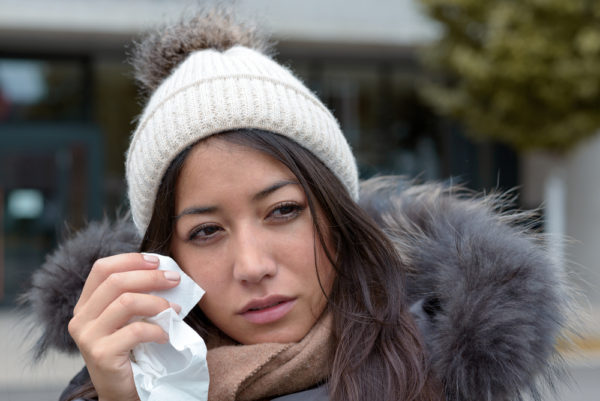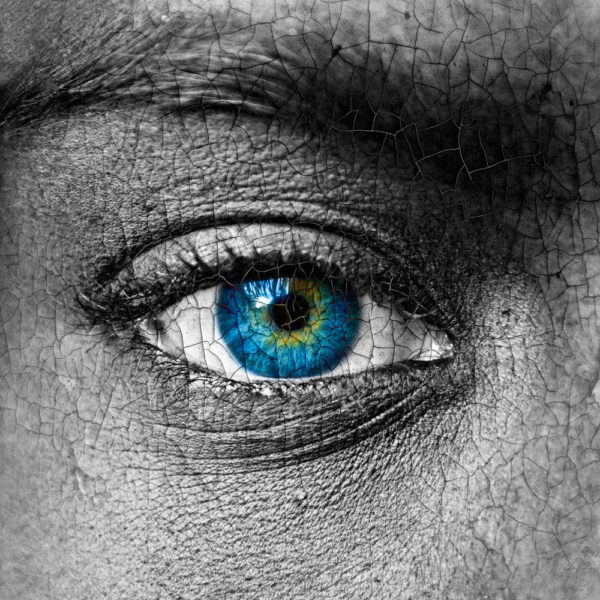Autumn has arrived, bringing with it cooler air, chilly winds and the until-recently-forgotten urge to flick up the central heating and spend even more hours glued to our screens. The problem? All of these factors contribute to the sharp increase in dry eye syndrome Britain experiences every Autumn and Winter.
Dry eye syndrome occurs when your eyes don’t produce enough good quality tears, resulting in dryness and irritation. The condition is common, with around two thirds of Brits experiencing multiple symptoms which can range from a gritty sensation in your eyes, to blurred vision, to soreness around your lids. And as wintery weather starts to encroach, symptoms tend to worsen.
Luckily dry eye treatment is usually simple and effective, and the team at the Optical Studio are highly qualified to alleviate your symptoms and offer maximum dry eye relief. However, it’s important you know when to seek help to avoid long-lasting damage to your vision, and to get clued up on the small lifestyle changes that could prevent the condition’s onset from the start.
So What Causes Dry Eye?

The condition is often the result of a combination of complex reasons –including as a symptom of diabetes, rheumatoid arthritis or Parkinson’s – but most commonly chronic dry eye is caused by environmental factors. During the Great British winter many of us are exposed to cold windy weather whilst outdoors and dry central heating whilst inside – both increase tear evaporation and your risk of dry eye syndrome.
“But how can I avoid going outside in the cold and staying inside in the warmth?” We hear you – don’t worry! There are a number of simple measures you can take to aid in dry eye relief. Here are a few quick fixes for effective dry eye treatment:
-
Stay Hydrated
First and foremost drink plenty of water to keep your body (and eyes) hydrated and avoid drinking too much coffee as it can act as a diuretic. Fluid-rich foods such as soups or smoothies can also help boost your liquid intake.
-
Shield Your Eyes
Whether you’re running for the bus or out on the ski slopes, wear glasses or wraparound sunglasses whilst outdoors to shield your eyes from cold winds on blustery days.
-
Eat Well
Improve the quality of your tears by incorporating ingredients rich in vitamin A, C and E and omega-3 fatty acids into your diet. We’d recommend oily fish such as mackerel, salmon or sardines, or for a vegetarian alternative flax seeds, soybeans and chia seeds.
-
Quit Smoking
Smoking is very bad for your eyes, so try to avoid active and passive smoking and stay at a clear distance from any autumn bonfires.
-
Invest in a Humidifier
Central heating can dry out the air inside your home, so invest in a humidifier to prevent fluid evaporation from your eyes. When driving wrap up warm or opt for the seat warmer instead of fast-drying air heaters.
-
Cut Screen Time
If you have an office job, schedule in short breaks throughout your day to give your eyes a rest from long hours in front of a computer screen.
-
Don’t Wear Your Contacts For Too Long
Avoid wearing your contact lenses for prolonged periods of time to prevent them drying out and damaging your eyes’ surface.
-
Use Eye Drops
If your symptoms worsen you may require specialist eye drops to ease irritation. Short-term dry eye relief can be found in over-the-counter products, but eye drops recommended by your optometrist offer the best dry eye treatment.

If you’re experiencing any symptoms of chronic dry eye or are wondering what causes dry eye in your life, don’t hesitate to book an appointment online at the Optical Studio’s dry eye clinic for the very best dry eye treatment and dry eye advice. You can also contact one of our practices here.
We’re looking forward to seeing you soon!

